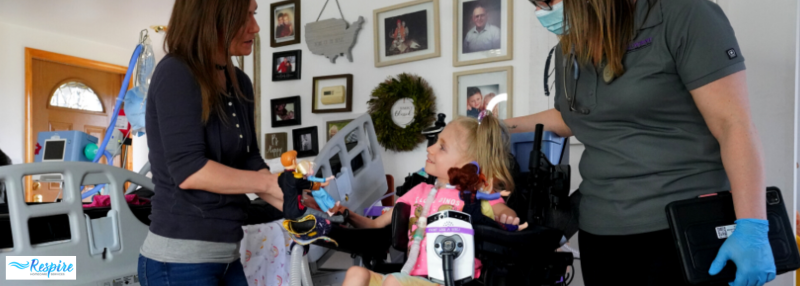Respire
Updated Thu August 1, 2024
Published Under: Respiratory Ventilators

Ventilators are critical medical devices that help patients breathe when they are unable to do so on their own. But why would someone need a ventilator at home? Let’s explore this common question.
What Is a Ventilator?
A ventilator is a machine that supports or takes over the breathing process, ensuring that the body gets the oxygen it needs. It can be used for short-term or long-term respiratory support.Why Would Someone Need a Ventilator at Home?
There are several reasons why a patient might need a ventilator at home:- Chronic Respiratory Conditions: Conditions like chronic obstructive pulmonary disease (COPD), amyotrophic lateral sclerosis (ALS), and severe asthma can impair breathing.
- Neuromuscular Disorders: Diseases such as muscular dystrophy or spinal cord injuries can weaken the muscles needed for breathing.
- Recovery from Severe Illness: Patients recovering from severe pneumonia, COVID-19, or other critical illnesses may need prolonged respiratory support.
- Post-Surgical Support: Some patients may require ventilator support after major surgeries until they can breathe independently.
How Does Home Ventilation Work?
Home ventilation involves using a portable ventilator that can be managed by trained caregivers or healthcare professionals. The ventilator can be connected via a tracheostomy tube or a face mask. Patients and caregivers receive thorough training on how to use and maintain the equipment, ensuring safety and effectiveness.Benefits of Home Ventilation
- Improved Quality of Life: Patients can stay in the comfort of their homes, avoiding long hospital stays.
- Personalized Care: Home care allows for tailored treatment plans and close monitoring by healthcare providers.
- Cost-Effective: Home ventilation can be more cost-effective compared to prolonged hospital care.
See Our Services
Comments